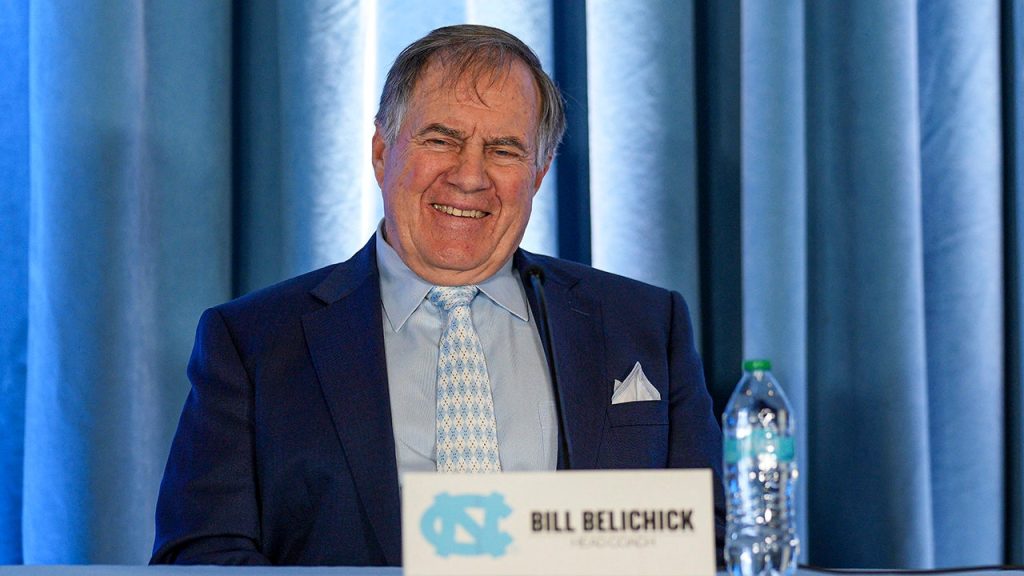Bill Belichick’s unexpected transition from the NFL to the helm of the UNC Tar Heels football program has sparked significant interest, particularly regarding his adaptation to the evolving landscape of college football recruiting in the NIL era. While many questioned how the veteran coach would navigate this new terrain, Belichick has quickly demonstrated his adaptability, securing a commitment from four-star quarterback Bryce Baker, a significant early victory for the program. This swift acquisition signals Belichick’s intent to build a competitive roster and underscores his understanding of the current recruiting landscape.
Belichick’s approach to recruiting mirrors his strategic mindset honed over decades in the NFL. He has likened the process to the combined frenzy of post-draft signings and free agency, requiring a rapid evaluation and acquisition of talent. This analogy highlights the accelerated pace of college recruiting, particularly with the advent of the transfer portal, which allows players greater freedom of movement between programs. Belichick has emphasized the collaborative nature of this endeavor, working closely with UNC GM Mike Lombardi to identify and secure players who fit their vision for the team. This partnership leverages Lombardi’s experience in both college and professional football, creating a formidable recruiting duo.
The open transfer portal has created a dynamic environment where programs must act quickly to capitalize on available talent. Belichick has noted that UNC is actively pursuing players, but also receiving inquiries from players and agents eager to join his program. This two-way street reflects the allure of playing for a legendary coach like Belichick, even at the college level. His reputation and track record precede him, attracting players who see the opportunity to develop under his tutelage. Furthermore, Belichick’s existing relationships with agents from his NFL tenure provide a valuable network for identifying and recruiting potential transfers.
While Belichick is building his coaching staff and evaluating the current roster, he recognizes the need for a swift and efficient process. Other programs with established coaching staffs have a head start in recruiting, making it crucial for UNC to maximize its efforts during this critical period. Securing a commitment from a top quarterback prospect like Bryce Baker provides a strong foundation for the team’s future, and Belichick is actively pursuing other key players to bolster the roster. This strategic approach emphasizes the importance of securing talent at key positions early in the recruiting cycle.
Belichick’s experience with free agency and the draft in the NFL has translated well to the fast-paced world of college recruiting. He understands the importance of building relationships with players and agents, as well as the need to act decisively when opportunities arise. His reputation and track record have proven to be valuable assets in attracting talent to UNC, and his collaborative approach with Lombardi ensures a thorough and strategic recruiting process. While the challenges of rebuilding a college program are significant, Belichick’s early success suggests that he is well-equipped to navigate this new environment.
Belichick’s arrival at UNC has injected a renewed sense of excitement and anticipation into the program. His proven ability to build winning teams, coupled with his adaptability to the evolving landscape of college football, positions the Tar Heels for a potentially bright future. The acquisition of Bryce Baker, a highly touted quarterback prospect, serves as a testament to Belichick’s recruiting prowess and his ability to attract top talent. As he continues to assemble his coaching staff and evaluate the current roster, the focus remains on building a competitive team capable of contending in the years to come. The combination of Belichick’s experience, his strategic approach, and the allure of playing for a legendary coach creates a compelling narrative for potential recruits, setting the stage for a new era of UNC football.

